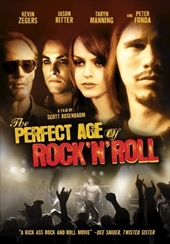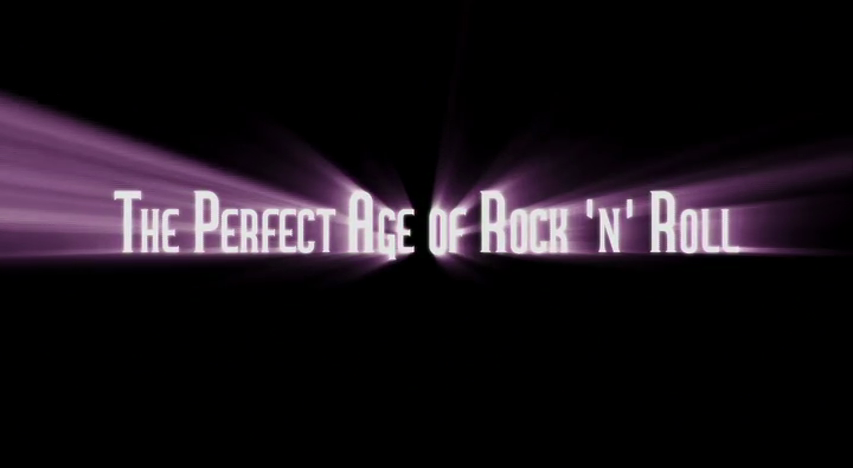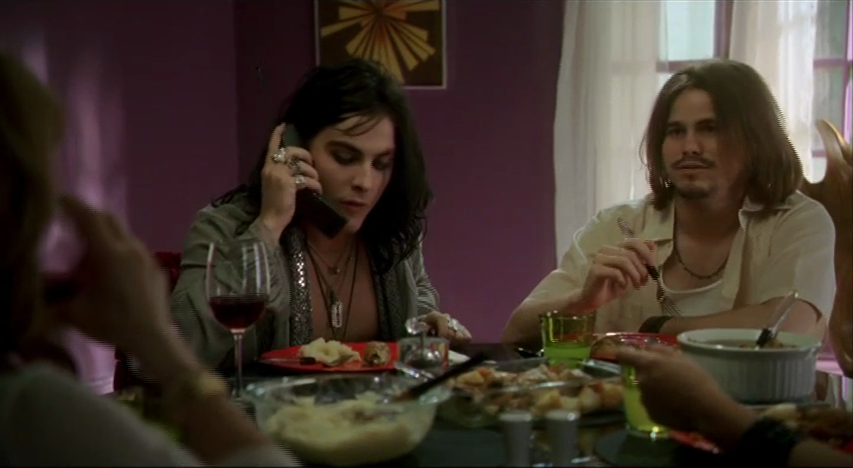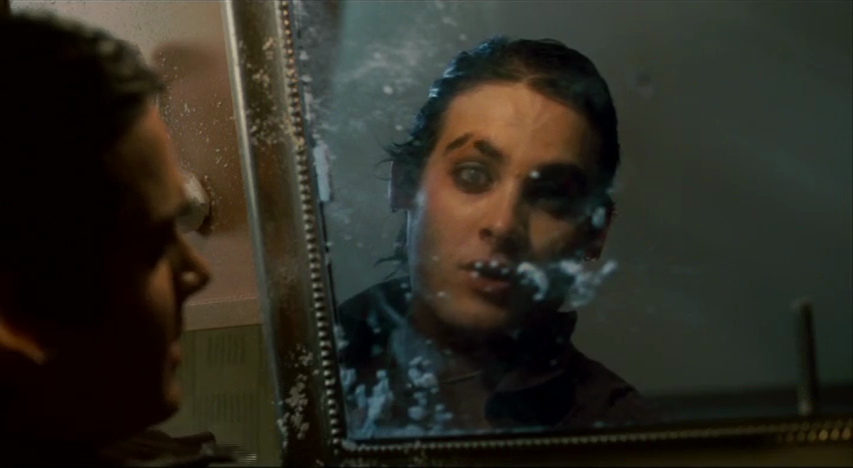 BUY NOW FROM AMAZON: CLICK HERE!
BUY NOW FROM AMAZON: CLICK HERE!
STUDIO: Entertainment One
MSRP: $24.98
RATING: R
RUNNING TIME: 91 minutes
SPECIAL FEATURES:
- Behind-the-scenes featurette
- The Lost Soulz “Turn Me On” music video
- Outtake Performances
- Deleted Scenes
- Promotional Spots
The Humans
Kevin Zegers, Jason Ritter, Taryn Manning, and Peter Fonda
The Pitch
Find out what created rock ‘n’ roll, blues-hound posturing or aging rockstar swag, in this deeply uninteresting road movie.

“On our new album, I wanted to try something different, like sing about issues that really mattered, like democracy in China or why top hats belong to rock musicians not rich socialites.”
The Nutshell
The overly enthusiastic performances give way to inauthenticity as the weak script and soundtrack fail the director’s best intentions.
The Lowdown
Like so many rock movies that came before it, The Perfect Age of Rock ‘n’ Roll is equal parts stupid, corny, energetic, and reckless. In this case, the film rests both on the speedy pacing of a road movie and the melodrama of past their prime musicians. The story of Spyder and Eric (Zegers and Ritter, respectively) doesn’t offer anything new to captivate rock fans, but it does create some unlikable rockstars and bland situations.
Spyder is the lead singer of The Lost Soulz–and, yes, everything I just wrote is true and considered cool in the world of the film. Notorious for writing a seminal 1991 record, the band just as infamously released a sophomore disaster, hurting their reputation, and challenging their relationship with the record label (represented by a tragically under-used Billy Dee Williams). With few options, least of all writing his own songs, Spyder turns to a childhood friend Eric, who was largely responsible for the songs on the first album.
The Perfect Age of Rock ‘n’ Roll pulls from sources across the rock ‘n’ roll hall of fame. There are elements of Oliver Stones’ The Doors, Eddie and The Cruisers, and, most unfortunately, Mark Whalberg’s Rock Star. Not to mention, elements of real rock legends, with Guns ‘n’ Roses being the most apparent model for the band, Spyder, and a missing final record. Yet it falls into so many of the same trappings as those films and rockstar realities, that Perfect Age forgets to make their would-be rock stars charismatic and cool.
As if his name wasn’t obnoxious enough, Spyder is irrepressibly whiny. Never quite sure how to make his dreams come true, sustain his lifestyle, or figure out whatever the hell he thinks he wants, Spyder pretty much wanders from scene to scene without concern for anyone other than himself. Had the script imbued his character with a single, redeemable trait, he would serve as some sort of redemptive figure, a warning to burgeoning musicians that life on the road isn’t as easy as it looks, man. Instead, we’re left with a cliche, and one that’s easy to hate.
Surrounding Spyder is his equally flat friend Eric, the band’s artist. Spyder relies on their past to convince him to come to California and record the third Soulz record, yet Eric has different plans. Seeing as Spyder stole his songs and broke a promise to travel Route 66 with him, Eric enlists his father’s friend and former roadie Peter Fonda to drive Spyder, Spyder’s manager, and the band across 66 towards California and along the way teach Spyder about real rock ‘n’ roll.
The film threads a number subjects to Spyder and Eric’s rock connection, but does so in an embarrassingly cliche manner. Spyder retains the mannerisms of a late-70s Steven Tyler, while Eric comes off as a pretentious rock snob–he’s obsessed with the blues and all about bringing rock closer to its core. Of course, neither of them succeed in accomplishing what rock ‘n’ roll really sets out to do (make money), and they’re worse off for it.
Furthermore, their connection to each other never fully develops. Spyder spends most of the film trying to convince Eric and the audience that they were good friends at one point. This fact is never described in a flashback, a symbolic memento, or an iota of chemistry between the two friends. They simply talk about the old times, with director failing to show their friendship.
Director Scott Rosenblaum can never really decide if he wants to make a gritty look at rock ‘n’ roll or nostalgic one, so he does what everyone thinks they can do and tries both. He uses his handheld camera to give the film a grittier, more fluid look, but fails to have Spyder do anything particularly shocking. Some minor drug abuse aside, Spyder fails to live up to the expectations set by other, real life rockstars. Rosenblaum holds back in this regard, keeping him from doing something truly awful, which would make his audience hate him. Yet, it turns out to be Spyder’s lack of action that makes him so difficult to manage. The character remains mostly passive to the action, sitting shotgun in the van, and staying in when his friends go to the bar.
To get his ode to the 60s out of him, Rosenblaum employs Peter Fonda to shepherd Ritter across his mythic Route 66. It’s a smart move that keeps the film from stagnating. Also, having Fonda recreate his easy riding past is more or less pretty fun. It’s clear that this is the film Rosenblaum knew how to make; it’s just a shame he couldn’t find an antagonist to properly disrupt it.
Rosenblaum suffers from his own script, because he has his characters speak exclusively in cliches. Everyone arguing about rock inevitably ruins the picture. Both Eric and Spyder are too narrow in their viewpoints, because while both side is right, neither can figure out who to marry their personal interpretations and expectations of the band. Also, the music they make together sucks.
The Perfect Age of Rock ‘n’ Roll never grasped what elements work well together. Never funny enough to be likable, never reprehensible enough to be memorable, and never exciting enough to be watchable, the film meanders on in a road movie format, with the audience hoping they get somewhere fast. But without a proper set of problems for these characters, the film spends most of its runtime trying to get the audience to both love and hate all of its flawed characters. Sadly, it only accomplishes the latter.
The Package
DVD special features can be weird territory. Most of the time, making of featurettes just seem like promos justifying the existence of the art you more or less just consumed. The director talks about how good the script is; an actor talking about how good their director is. It never really makes up for what may have been a really terrible movie, and the more praising the filmmakers seem to make, the more likely it’s a bad one.
The Perfect Age of Rock ‘n’ Roll is no different. The Making Ofs are awkward promos, extended trailers, and/or explanations for the why movie just isn’t very good. The rare looks behind the scenes are nothing to write home about. Rosenblaum praises his producer, music director, actors, but not his tattoo artists. Curious. Meanwhile, we get a rare look at Zegers recording his vox without a shirt on. It helps him get into character. It’s pretty much a waste of time but perfect for embracing the numbness that comes from spending your Friday evening with a bottle of Sammy Hagar’s Cabo Wabo tequila and a copy of The Perfect Age of Rock ‘n’ Roll. However, the trailer that ruined the film’s ending was pretty cool.
There’s also a wealth of extras involving the film’s music. Now, your enjoyment of the Lost Soulz, their music videos, and performance footage will depend on how much Cabo Wabo you’ve consumed or how long you’ve stared blankly at a Guitar Center catalogue. I can’t drive 55, so my assessment of the fictional band is that they’re pretty bad. This DVD is really missing Beavis & Butt-head’s commentary for the Soulz’s video “Turn Me On,” which exists in the most perfect corners of my mind.
Rating: 




Out of a Possible 5 Stars




